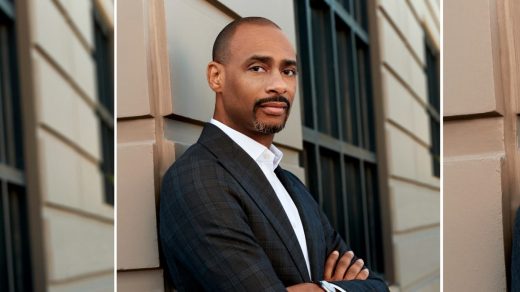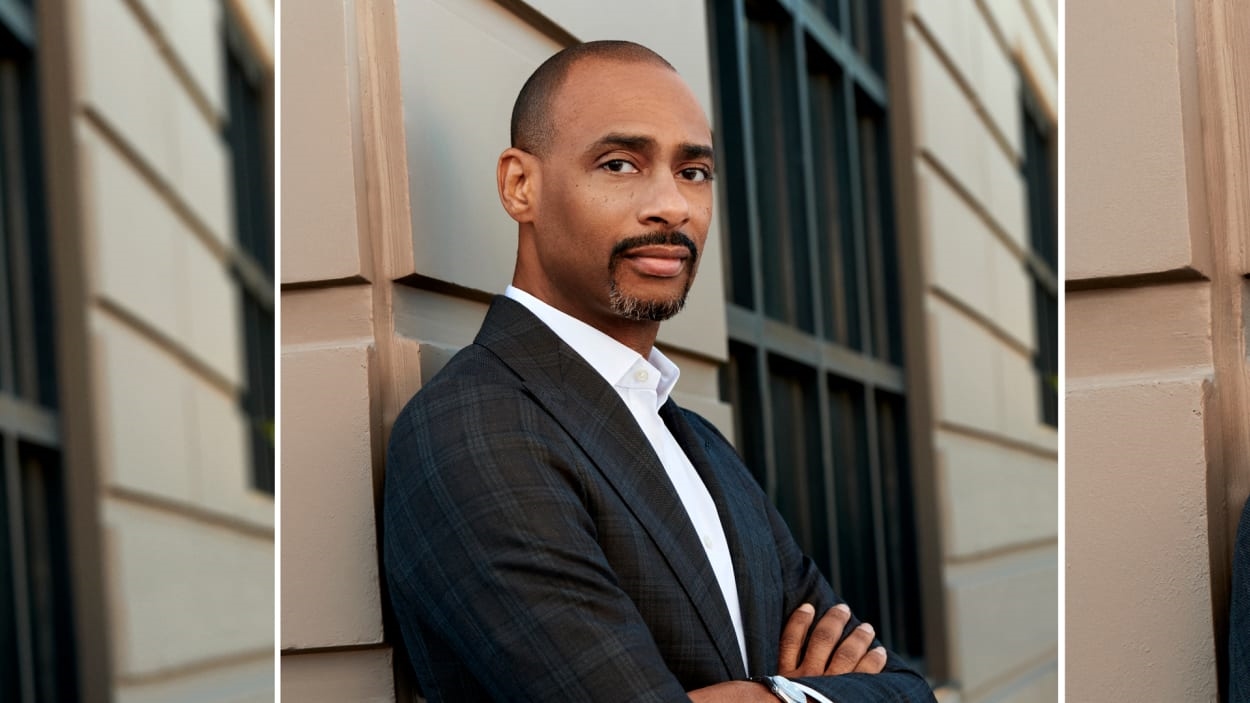Charles D. King plots the Black-led media studio of the future with almost $100 million in new funding
When top Hollywood agent Charles D. King wrote the business plan for Macro, a film and TV production company focused on backing stories by and about people of color and other underrepresented communities, he says, “There was almost no awareness of the strength of this audience.” That began to change when the company launched in 2015, and it quickly established itself as a purveyor of prestige fare, garnering Oscar nominations for such films as Dee Rees’ Mudbound, and wins for Denzel Washington’s Fences and Shaka King’s Judas and the Black Messiah. Meanwhile, TV series, including Raising Dion and Gentefied, drew eyeballs and praise, proving King’s theory of just how underserved the BIPOC audience had been.
Seven years into Macro’s run, its founder and CEO is eyeing a bigger prize as he widens the company’s lens to more expensive, mainstream projects. With a new, $90 million-plus minority investment led by BlackRock Alternatives, Macro is gearing up to launch its largest-scale production yet: the summer sci-fi movie, They Cloned Tyrone, starring Jamie Foxx and John Boyega. Harbourview Equity Partners and funds managed by Goldman Sachs Asset Management, also participated in the round, joining a list of Macro investors including Emerson Collective, AMC Networks, Essence Ventures, and MNM Creative.
They Cloned Tyrone, which has been described as a “pulpy, sci-fi, mystery caper,” is Macro’s first foray into mid-budget, mainstream moviemaking. It will be released in theaters and on Netflix this July. King says it won’t be the company’s only big swing. In an exclusive interview with Fast Company, when asked if Macro would consider getting into the superhero-franchise business, he didn’t hesitate: “One thousand percent.”
Macro’s new financing also will allow King to further scale the many divisions of the company, which today include a talent management arm, early-stage venture fund, digital content studio, and a creative agency that’s behind the Macro pre-Oscars party—which many consider the Black Hollywood event of the year. Last year’s bash was held at SoFi Stadium and drew 2,000 guests. This year’s party will be held on March 9, pre-Oscars, at an undisclosed, private venue.
“We will markedly expand our efforts in the development and ownership of IP, strengthen our connectivity with consumers and broaden the range of services provided by our brand verticals and representation partnership,” King says of the company’s new phase. Indeed, he says he hopes to build Macro into the next Disney or a similar “long-standing entertainment media brand that is going to be around for generations. That’s what we’re building. We’re in the very early days of establishing our foundations and building our brand.”
While others aspire to Disney-like success—including LeBron James and Maverick Carter’s SpringHill Company—Macro has already started to establish a meaningful identity. The company stands for high-quality content, built around people of color, and “storytelling that is both culturally authentic but also has universal appeal,” as King says. He also stresses content that has a “global perspective” and says that pushing Macro further into international markets is another aspect the new funding will help fuel. “That could be finding opportunities to partner with companies in Africa or looking at other areas globally with people of color,” he says. “It could be local productions for streaming platforms or finding shows or movies that are domestically driven but set in a global setting.”
They Cloned Tyrone was filmed in Atlanta in 2020, at the height of the pandemic. Incentivized to push forward with production due to limited windows in Foxx and Boyega’s schedules, Netflix and the producers created an “NBA-style production bubble,” King says, where the cast and crew were divided into specific zones and could only travel between their hotels and the set.
The production mirrored Macro’s own trajectory during the pandemic, which was to double down and grow, rather than stall and wait things out or, worse, downsize, as many organizations were forced to do. “While other companies were, in the chaos of the moment, firing people and restructuring, we actually more than doubled our size,” King says. “We’re coming out of this in such a positive way.”
Indeed, Macro’s branding and representation divisions were both birthed during the dog days of COVID-19. The former is headed by King’s wife, chief brand officer Stacey Walker King, who in addition to overseeing content created to support Macro projects, began organizing branded activations, such as the Macro Lodge at Sundance and the pre-Oscars party. Buzzy and star-studded, the parties began attracting interest from others looking to connect with the company’s multicultural community. “There were incoming calls to our brand team saying, Hey, we saw what Macro did with the party at the Macro Lodge, can you build something like that for us?” says Charles King.
Last fall, Macro worked with Chase Sapphire to create branded events at Art Basel Miami Beach, including a Cardi B performance and a yacht cruise around the city. Other partners include Meta, Target, and Amazon Studios with whom Macro has built activations, King says, “with a highly influential, multicultural audience in an authentic way.”
Part of Macro’s appeal for brands is its homegrown synergy. M88, the company’s management business that launched in 2020 in partnership with Phil Sun (a former colleague of King’s at WME), is stocked with the hottest names in the industry: Michael B. Jordan, Ryan Coogler, Dominique Thorne, and Idris Elba. King says that M88 talent naturally crosses over “to our content studios when it makes sense to collaborate and partner together.” But even when Macro isn’t involved as a producer, the company’s talent reach is ubiquitous.
“I was just at the Creed (III) premiere last night,” King says, pointing out the Macro connections: star-director-producer Jordan and Coogler, who wrote the story and is also a producer. “And we just learned that The Color Purple is going to be released on Christmas Day (on HBO Max), and Blitz Bazawaule—another M88 client—is the director of that. Last year, Black Panther: Wakanda Forever came out and Dominique Thorne was in it.” Thorne is next starring in the upcoming film Freaky Tales, being directed by Captain Marvel directors Anna Boden and Ryan Fleck for Macro and e-One.
Macro also weathered the social upheavals of the past few years, as the world—and Hollywood—shifted more attention to people of color, thanks to the Black Lives Matter movement. The discourse validated Macro’s core mission, and King admits there have been incremental changes for the good. But, he maintains, “We still have quite a ways to go. I know how much of a challenge we’ve faced at different times, getting the distribution partners to understand and to appreciate the value of the storytelling and the beautiful art that’s being made independently,” he says. “I believe we need to see more diversity within the ranks of people who have green light decision-making power, as well as those who can unlock access to distribution. I believe that we’ll see that evolve over the next 10 years . . . and that that will be part of the sea change we will continue to see.”
Macro, meanwhile, is continuing on its mission. Beyond creating content that amplifies Black and underrepresented voices, the company’s early-stage investment arm, MaC Venture Capital, has invested in buzzy startups, such as Genies and Overtime. “Look, our mission goes beyond building a multibillion-dollar media company. We also have a mission to be part of shaping culture and economically empowering communities of color,” King says. “How better to do that than to invest in entrepreneurs who are creating some of the most innovative companies of the future? It’s been beautiful to see that 75% of the founders of (our investment) companies are women and people of color. And looking at the impact that fund has had—it’s just been extraordinary.”
(17)



